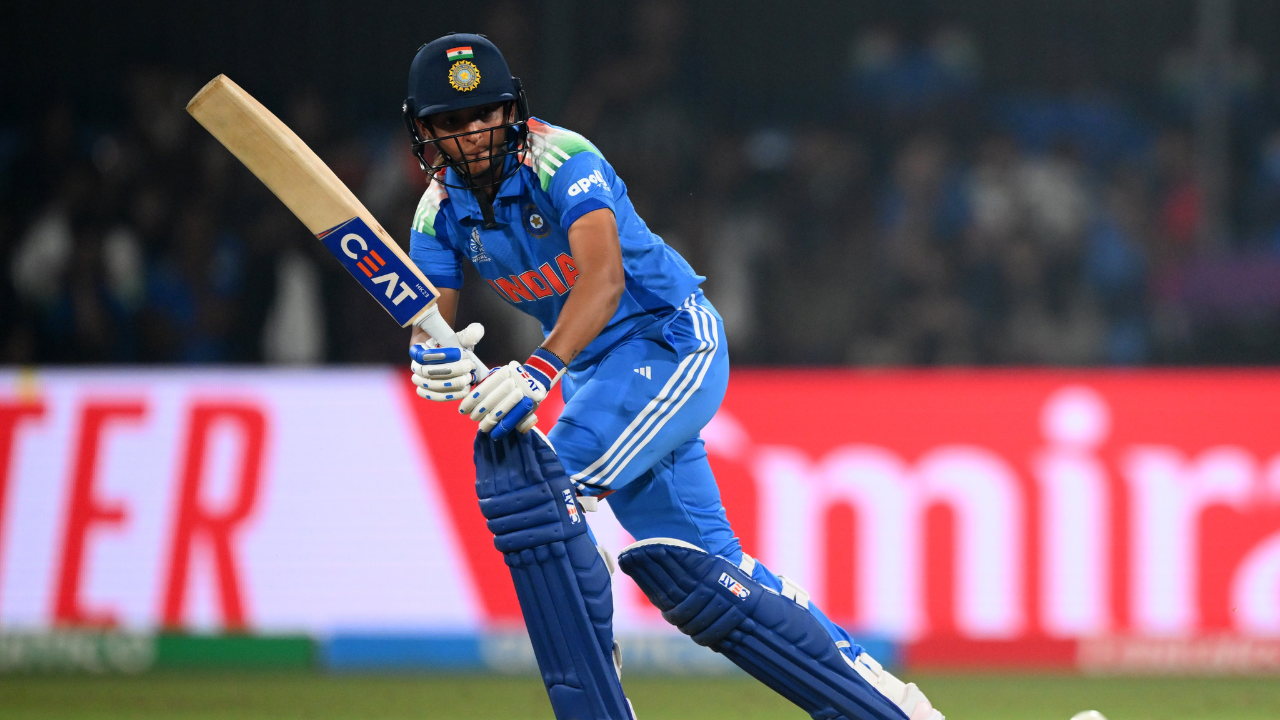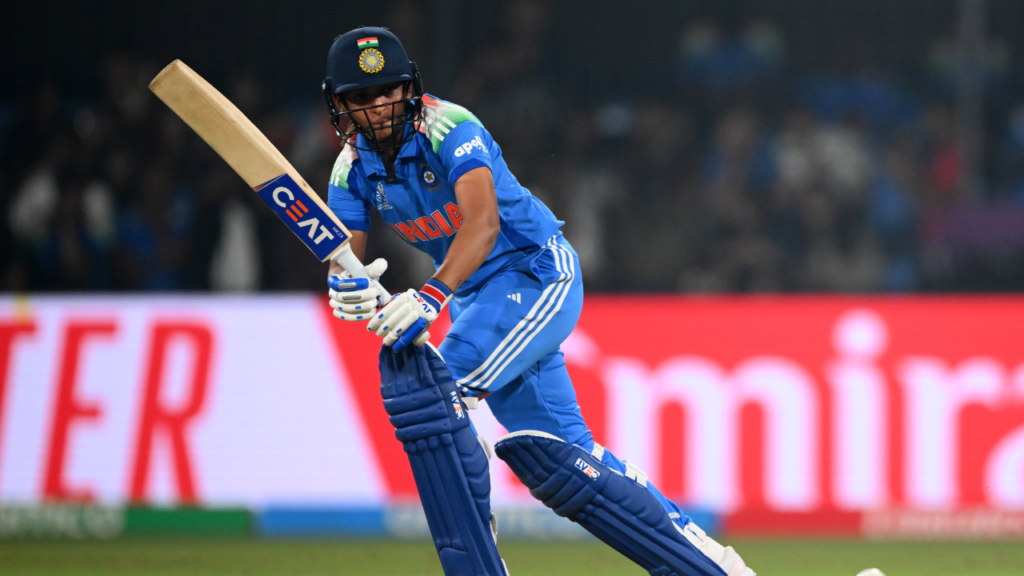
By Trisha Ghosal in Mumbai
India’s campaign at the ICC Women’s World Cup 2025 is teetering, and the person expected to hold the side together, captain Harmanpreet Kaur, seems to be slipping further away. One half-century in five games, no post-match press conference appearances, and a string of reactive tactical calls, it’s the kind of leadership that doesn’t just lose matches; it erodes accountability.
Where is the leader when the team keeps losing?
In three consecutive defeats, to South Africa, Australia, and now England, Harmanpreet hasn’t once fronted up to the media after the match. Each time, it’s been someone else, who has walked in, taken questions, and accepted responsibility. After Sunday’s four-run loss to England, vice captain Smriti Mandhana came for the press conference and said quietly, “The shot selection should have been better, and I’ll take responsibility because the collapse started with me.” That’s a vice-captain doing what the captain should, owning the moment.
A leader’s silence in defeat speaks louder than any words. When a team is under fire, facing criticism for consistency, intent, and planning, the captain’s presence is non-negotiable. This isn’t just about PR, it’s about accountability. And right now, Harmanpreet’s absence is defining India’s campaign as much as her middling returns with the bat.
Follow Revsportz for latest sports news
One fifty, five matches and a pattern of reactive captaincy
Harmanpreet’s only fifty-plus score in the tournament came against England, a fluent 70 that reminded everyone why she remains one of India’s finest match-winners. But the knock also underlined a bigger truth: she’s been far from the impactful leader this World Cup demanded. Compare that to other captains, Alyssa Healy’s urgency, Nat Sciver-Brunt’s defiance, Sophie Devine’s composure, even Nigar Sultana Joty’s ability to marshal her troops, each has shaped their team’s campaign. Harman, meanwhile, seems to be caught between instinct and indecision.
Against England, Heather Knight survived early, an edge flying past where a slip should’ve been. Only after that did the field change. And when it came to the final over, with Renuka Singh still having one left, N Sree Charani, who was already not having a great day with the ball, was given the responsibility and England were allowed to climb to 288.
It’s not just about tactics, it’s about tone
This World Cup has tested India’s planning, belief, and adaptability. But most of all, it has tested their leadership. A captain is supposed to be two-three overs ahead of the game, the captaincy so far in display, has shown Harmanpreet, the skipper is one step behind the game.
If India are to survive, that must change in Mumbai. The team doesn’t just need Harmanpreet the batter, they need the captain who commands the room, faces the heat, and leads the fight. Because right now, India are not losing for lack of talent. They’re losing for lack of accountability.

Also Read: Pressure Peaks in Navi Mumbai as India Stare at a Virtual Quarter-Final Against New Zealand





